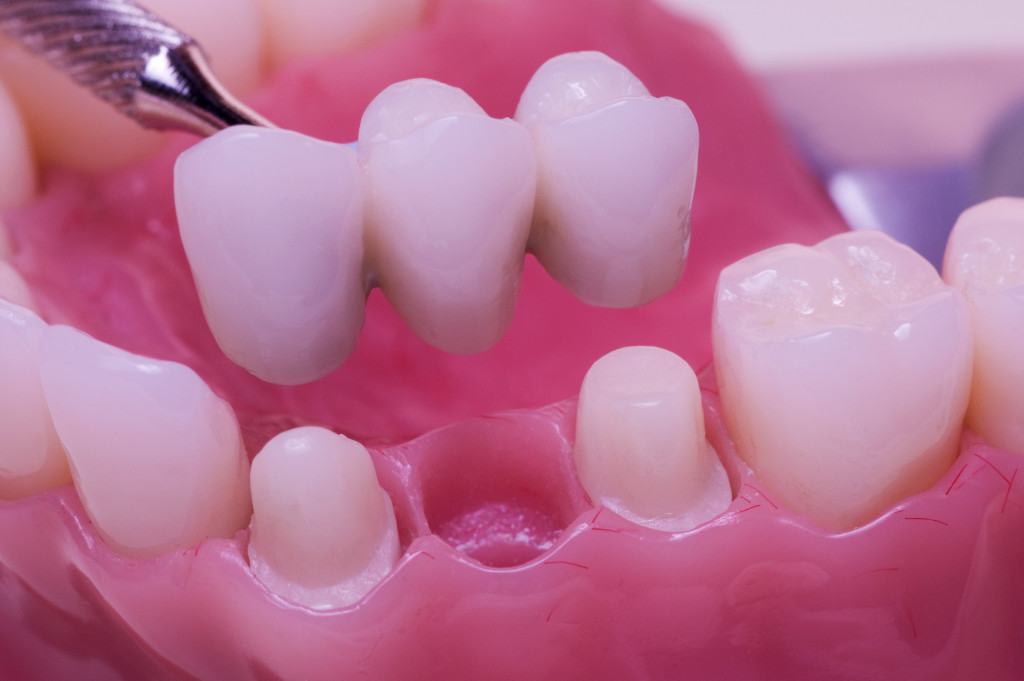Disclaimer: The Lifestyle Elf. This site provides fashion and lifestyle content for informational purposes only.
- Missing teeth can affect your ability to eat and digest food correctly, leading to several health problems.
- Difficulty chewing, nutrient deficiency, digestive issues, tooth shifting, and psychological effects are associated with missing teeth.
- Dental implants, bridges, dentures, or partial dentures may be used to replace missing teeth.
- To protect overall health, good oral hygiene and regular dental visits are necessary, as well as seeking dental assistance to replace missing teeth.
Nutrition is essential for a healthy body, and food plays a significant role in keeping you healthy. But what happens when you have a missing tooth? Did you know that a missing tooth can affect your nutrition intake?
Yes, that’s right! A missing tooth may affect your ability to eat and digest food correctly, leading to several health problems. Read below to learn how a missing tooth affects your nutrition and what you can do to prevent it.
Difficulty chewing
When a tooth is lost, the remaining teeth will shift to fill in the gap, leading to a misalignment of the bite. This misalignment can make it difficult to bite and chew food properly. Such a challenge leads people to avoid certain foods, which are instrumental in maintaining a healthy diet.
For instance, tough vegetables, meat, and nuts, which require the force of a complete set of teeth to break into smaller pieces to swallow, become unappetizing. However, these food ingredients are necessary for a healthy and varied diet.
Nutrient deficiency

Since you cannot chew food correctly, you may miss out on essential nutrients that the body needs to function correctly. Foods that are not properly chewed are harder to digest, leading to decreased absorption of nutrients. Additionally, certain foods, such as raw fruits and vegetables, which require adequate chewing, must be avoided or prepared differently, reducing overall nutrition intake.
Tooth decay and gum disease
Missing teeth can lead to an increased risk of tooth decay and gum disease. This is because the remaining teeth become more vulnerable, and it becomes harder to remove plaque and leftover food particles in the mouth.
The lowered mouth hygiene provides a breeding ground for an overgrowth of bacteria in the mouth, which causes tooth decay and gum disease. Unhealthy gums and oral hygiene problems can ultimately lead to more missing teeth. As a result, a person may struggle even more with their nutrition intake.
Digestive issues
A missing tooth can also lead to digestive problems such as acid reflux, constipation, and gastric ulcers. These problems occur because food not adequately chewed and digested takes longer to pass through the digestive system, giving it more time to ferment and leading to acidity and bloating.
Managing tooth loss
If you have a missing tooth, it is essential to take the necessary steps to address the issue. The first step you need to take is to visit your trusted dental clinic so that the dentist can evaluate your condition and recommend a treatment plan such as dentures, bridges, or implants.
These will help fill in the gaps in your teeth, restore your bite alignment, and protect other teeth from decay. Depending on your condition, your dentist may recommend several solutions, such as:
Dental Implants
Implants are a long-term solution for missing teeth and involve placing a screw-like titanium rod into the jawbone to support a crown. This procedure is considered the most successful and natural replacement for missing teeth.
Bridges

Dental bridges are artificial teeth that replace one or more missing teeth. The bridge is bonded to the adjacent teeth and can restore your smile and improve your bite. They are more affordable than implants but not as strong or long-lasting.
Dentures
Dentures are removable artificial teeth that are custom designed to fit your mouth. They can be a cost-effective option for replacing multiple teeth but require regular maintenance and replacement.
Partial Dentures
If one or a few teeth are missing, partial dentures can be used. Partial dentures are removable and attach to adjacent teeth with a metal framework. They are also cost-effective and can be removed for cleaning, which makes them easy to maintain.
The bottom line
In conclusion, a missing tooth can affect your nutritional intake in several ways. Difficulty chewing, nutrient deficiency, digestive issues, tooth shifting, and psychological effects are the most common concerns related to a missing tooth.
Maintaining good oral hygiene and visiting a dentist regularly can help prevent tooth loss and protect your overall health. It’s also crucial to seek dental assistance to replace missing teeth if you experience difficulty eating or talking or suffer from dental or jaw pain. So, take good care of your teeth to ensure you live a healthy, happy, and healthy life.

